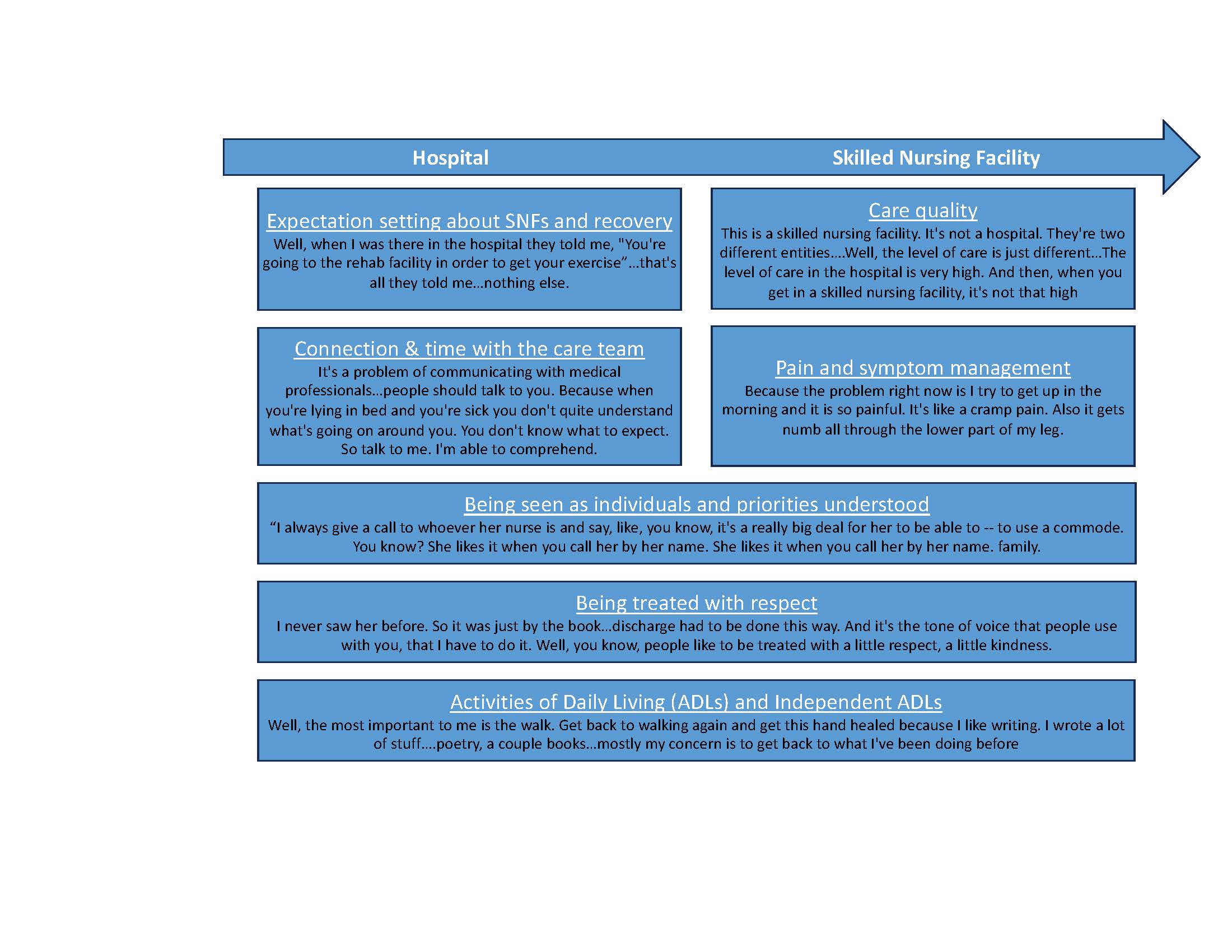Background: Older adults are commonly discharged to skilled nursing facilities (SNFs) after hospitalization. It is not known how patients anticipate SNF discharges and what they prioritize. The aims of this study are to explore what matters most to older adults during their hospital to SNF care transition.
Methods: We conducted a grounded theory qualitative study. This study took place on the Medicine Service at an urban academic medical center (AMC) and an urban short-term rehabilitation SNF. Adults were eligible if they were ≥65 years old and English speaking without dementia. Caregivers of eligible older adults were also invited to participate. We conducted individual in-depth interviews with patients and caregivers within seven days of the patient’s admission to the SNF. We also conducted ethnographic observations of hospital and SNF care activities (e.g., rounds, family meetings, discharge planning and SNF admission). Data was analyzed using constant comparative methods to create codes that were organized into conceptual categories.
Results: We completed 20 in-depth interviews (16 patients, 4 caregivers) and 30 hours of ethnographic observations. Seven conceptual categories describing what matters most to older adults were identified – some were consistent across the hospital to SNF setting while others were exclusive to the hospital or SNF (see Figure 1). Within the hospital only, participants wanted to spend more time and have a connection with their hospital team as well as receive better communication about what to expect at a SNF and their post-hospital recovery arc. Across both care settings, achieving everyday activities of daily living (ADLs) and independent activities of daily living (IADLs) were priorities. Being treated with respect by their care team was also highly valued as was being seen as an individual. Specifically, participants wanted their care teams to understand who they were, aspects of their daily life before they were hospitalized or admitted to a SNF, and what mattered most to them. Within SNFs only, pain and symptom management were prioritized. Concerns about the quality of care in SNFs were also frequently noted. Representative quotes from each conceptual category are shown in Figure 1.
Conclusions: This study of older adults and caregivers transitioning from the hospital to a SNF identified several patient-reported priority areas, including knowing what to expect, prioritizing their independence and respect as a person, and to attend to symptom management. Understanding what matters most to older adults has the potential to ensure care across the hospital to SNF transition that aligns with their needs and priorities.

